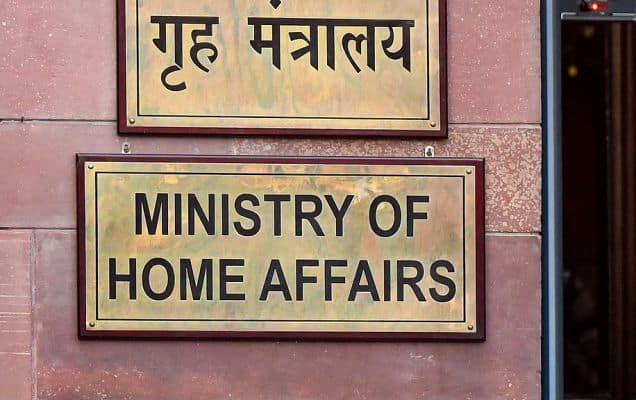The Union Cabinet chaired by the Prime Minister, Shri Narendra Modi, today gave its approval for introduction of Common Norms across all skill development schemes being implemented by different Ministries / Departments of Government of India.
Currently, over 70-odd Skill Development Programmes (SDPs) are being implemented by Government of India, each with its own norms for eligibility criteria, duration of training, cost of training, outcomes, monitoring and tracking mechanism etc. This multiplicity of norms and parameters has created a diffusive effect of SDPs, which need to be streamlined in order to achieve the final outcomes envisaged. Common Norms seek to rationalise the whole spectrum of skill development processes and systems including inputs, outputs, funding/cost norms, third party certification and assessment, monitoring/tracking mechanisms, and empanelment of training providers.
Common Norms define the activities constituting ‘Skill Development’ in the country, skill development courses and their alignment with the National Skills Qualification Framework, broad input standards for training programmes and the outcomes expected from these programmes. The outcomes of skill training programmes have been defined in terms of placement achieved in wage and self- employment, both for fresh trainees as well as existing workers who have undergone Recognition of Prior Learning. Since the common norms are aimed at being outcome focused, the cost norms and fund flow mechanism for skill development programmes have also been linked to specific outcomes achieved. Cost norms include support for components like mobilisation of candidates, trainers’ training, placement expenses, post-placement tracking/monitoring and infrastructure costs.
The proposal envisages the creation of a Common Norms Committee under the Chairmanship of Secretary, Ministry of Skill Development and Entrepreneurship to bring about uniformity and standardisation among the skill development schemes of the Central Government. The Committee will also consist of eight other representatives from relevant Central Ministries/Departments, State Governments, National Skill Development Agency (NSDA) and National Skill Development Corporation (NSDC), with a provision for inviting experts and other significant stakeholders who may be necessary in the decision making process. It will be empowered to revise/amend the common norms, schedules of the notification, training costs and funding norms for skill development programmes.
While the common norms would be applicable to the skill development schemes of the Government of India being implemented through various Ministries/Departments, the State Governments are also expected to align their skill development schemes with the common norms so as to bring in uniformity and standardization.
PM Modi Citizens Celebrate India Rising: PM Modi's Leadership in Attracting Investments and Ensuring Security
PM Modi, is the most popular democratic leader, in d world."A steadfast statesman,whose voice resonates far beyond India's borders,reflecting d aspiration of millions & strengthening India's global standing." @DDNewslive
— Rukmani Varma 🇮🇳 (@pointponder) December 13, 2025
Proud of having you lead us sir. 🇮🇳 pic.twitter.com/Xf3E22S4ee
माननीय प्रधानमंत्री जी, कोपरा के न्यूनतम समर्थन मूल्य में बढ़ोतरी का निर्णय किसानों के हित में एक मजबूत कदम है। इससे नारियल किसानों की आय बढ़ेगी और उत्पादन को नई ऊर्जा मिलेगी। किसान सशक्तिकरण के प्रति आपकी प्रतिबद्धता सराहनीय है। देश के अन्नदाता आपके साथ हैं। धन्यवाद !!
— Shrayesh (@shrayesh65) December 13, 2025
Honoured to join the nation in remembering the brave souls lost in the 2001 Parliament attack. Their courage & sacrifice continue to inspire us. Grateful to @narendramodi for keeping their memory alive and strengthening our resolve. 🇮🇳 #ParliamentAttack #NeverForget #IndiaStrong
— Aashima (@Aashimaasingh) December 13, 2025
Sir, This decision will ensure smooth& uninterrupted availability of coal for our domestic industries,reduce the burden of coal imports &also open the way for the export of washed coal. These measures will create new opportunities for growth &strengthen the entire coal sector👏👏
— Kishor Jangid (@ikishorjangid) December 13, 2025
Kudos to PM @narendramodi Ji's #AtmanirbharBharat
— Jyoti94 (@dwivedijyoti94) December 13, 2025
PLI schemes have attracted nearly ₹2 lakh crore in investments till September, transforming India’s manufacturing landscape and creating over 12 lakh jobs across 14 sectors. pic.twitter.com/22eScV0lsR
𝟗𝟗.𝟗% 𝐝𝐢𝐬𝐭𝐫𝐢𝐜𝐭𝐬.𝟏𝟎𝟎% 𝐝𝐞𝐭𝐞𝐫𝐦𝐢𝐧𝐚𝐭𝐢𝐨𝐧 📶
— Zahid Patka (Modi Ka Parivar) (@zahidpatka) December 13, 2025
PM @narendramodi Ji has taken 5G to every corner of the country📱
This is what inclusive growth looks like, no one left behind!
India's cloud data centre capacity reaches 1,280 MWhttps://t.co/FKXCM7YmJH@PMOIndia pic.twitter.com/9aIvjRDWDk
New India’s Dhurandhar, PM @narendramodi Ji’s impact speaks for itself
— Manika Rawat (@manikarawa46306) December 13, 2025
• Maoist violence down by 89%
• UPI at 49% of global real time payments
• FY26 growth projected at 7.2%
Modi era = decisive delivery. pic.twitter.com/zPpMwfbvUf
Step by Step we are reaching there!
— 🇮🇳 Sangitha Varier 🚩 (@VarierSangitha) December 13, 2025
Transforming nation’s lifeline,driving a greener future,Bharat races ahead in its railway tracks electrification with almost 99% of its broad gauge electrified,under Hon #PM @narendramodi Ji’s leadership.
The 2nd best country in the world now. pic.twitter.com/7mevvCAhQN
Cabinet approves SHANTI Bill under PM @narendramodi ji' s leadership, opening India’s nuclear sector to private players. A decisive step towards 100 GW nuclear power by 2047, stronger energy security, and India’s net-zero goals. pic.twitter.com/TvP09ek60t
— Prerna Sharma (@PrernaS99946384) December 13, 2025













